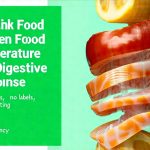The human body is an astonishingly complex system, constantly striving for balance – homeostasis as it’s known in physiological terms. This internal equilibrium isn’t just about temperature regulation or blood pressure; it extends to our emotional and psychological state, heavily influenced by the physical sensations within us. When that delicate balance is disrupted, often beginning with something as fundamental as digestive function, we experience a cascade of effects extending far beyond mere discomfort. One particularly intriguing phenomenon linked to this disruption is an intense craving for familiar foods or routines – a yearning that goes deeper than simple preference and seems almost primal in its intensity. It’s a signal, whispered from the gut to the brain, indicating something isn’t quite right within our internal ecosystem. If you find digestion slows down in the evening, understanding these signals is key.
This seemingly paradoxical response—seeking comfort through what we know when feeling unwell—is a fascinating example of how deeply intertwined our physical and emotional states are. Digestive issues, ranging from mild bloating to more serious conditions, can send stress signals throughout the body. These signals aren’t just registering pain or discomfort; they’re impacting neurotransmitter levels, hormonal balance, and even the brain’s reward system, leading to a desire for predictability and safety. The comfort found in familiar tastes, textures, and smells isn’t necessarily about the food itself, but about the emotional association we have with it – memories of feeling safe, cared for, or simply content. It represents a return to a perceived state of stability when our bodies are actively signaling distress. For days when digestion feels off, consider options like low-residue meals.
The Gut-Brain Connection & Comfort Food
The strong link between digestive health and mental wellbeing isn’t new, but recent research has dramatically illuminated the extent of this connection – often referred to as the gut-brain axis. This bidirectional communication pathway involves complex interactions between the nervous system, immune system, endocrine system, and the trillions of microorganisms residing in our gut (the microbiome). When digestion is compromised—whether due to food sensitivities, stress, infection, or other factors—it impacts this entire network. Inflammation within the gut can trigger systemic inflammation, affecting brain function and mood regulation. Furthermore, imbalances in the microbiome have been linked to changes in neurotransmitter production, influencing anxiety levels and even cognitive processes.
This explains why digestive upset often accompanies feelings of anxiety or depression, and conversely, why stress can exacerbate digestive symptoms. When we’re stressed, our bodies divert energy away from digestion, leading to reduced enzyme production, decreased gut motility (movement), and a potential compromise in the microbiome’s delicate balance. A disrupted gut sends signals to the brain indicating distress, which then amplifies feelings of anxiety or unease. In this state, the craving for familiar foods isn’t simply about taste; it’s an attempt by the brain to regain control and find solace through a sense of predictability. If meals feel ‘stuck’, understanding your digestion speed is important.
The “comfort” in comfort food often stems from these deeply rooted associations—a specific dish might remind us of childhood, family gatherings, or periods of safety and security. It triggers the release of dopamine, the neurotransmitter associated with pleasure and reward, offering temporary relief even though it doesn’t address the underlying digestive issue. This can create a cycle where we seek comfort in foods that may actually contribute to further digestive distress, especially if they are highly processed or contain ingredients our bodies struggle to tolerate. Ultimately, recognizing this connection is crucial for breaking free from this pattern and addressing the root cause of both the digestive discomfort and the emotional craving. Identifying potential inflammation through digestive tests can be a useful step.
Identifying Digestive Triggers & Patterns
Pinpointing what’s causing your digestive issues can be a complex process, but it’s essential for understanding why you might be craving familiarity. It requires mindful observation and potentially working with a healthcare professional to rule out underlying medical conditions. One of the most effective starting points is keeping a detailed food diary. This isn’t just about listing what you eat; it’s about recording how you feel before, during, and after eating specific foods.
- Note the time of day, your emotional state, any stress levels, and any accompanying symptoms (bloating, gas, heartburn, fatigue, etc.).
- Be as specific as possible: instead of “salad,” write down all the ingredients in the salad and how it was prepared.
- Look for patterns: Do certain foods consistently trigger digestive issues? Are you more sensitive to foods when stressed?
Another helpful technique is an elimination diet – a process where you temporarily remove potentially problematic foods from your diet (common culprits include gluten, dairy, soy, sugar, and processed foods) and then reintroduce them one at a time while carefully monitoring for symptoms. This can help identify food sensitivities or intolerances that might be contributing to your digestive upset. It’s important to note that elimination diets should ideally be done under the guidance of a registered dietitian or healthcare provider to ensure you’re still getting adequate nutrition. When constipation is intermittent, different testing approaches may be needed.
Beyond food itself, consider other factors that could impact digestion, such as stress levels, sleep quality, and physical activity. Chronic stress can significantly impair digestive function, while poor sleep disrupts hormonal balance and gut motility. Regular exercise promotes healthy gut movement and reduces inflammation. By addressing these lifestyle factors alongside dietary changes, you can create a more supportive environment for optimal digestion and reduce the likelihood of triggering those comfort-craving cycles. If you suspect your liver is involved, consider when a liver scan might be helpful.
The Role of Mindfulness & Emotional Regulation
Often, the craving for familiar foods isn’t solely about physical discomfort; it’s intertwined with emotional needs. When we feel anxious or overwhelmed, food can become a coping mechanism – a way to self-soothe and temporarily numb uncomfortable feelings. This is where mindful eating practices can be incredibly beneficial. Mindful eating involves paying attention to the present moment experience of eating—the sights, smells, textures, and flavors—without judgment. It encourages you to slow down, savor your food, and tune into your body’s hunger and fullness cues.
- Before you eat, take a few deep breaths and check in with yourself emotionally: What are you feeling? Why do you want to eat?
- As you eat, focus on the sensory experience of the food: Notice the colors, aromas, and textures. Chew slowly and deliberately.
- Pay attention to your body’s signals: Are you truly hungry, or are you eating out of boredom, stress, or habit?
By practicing mindful eating, you can become more aware of your emotional connection to food and start to disentangle physical hunger from emotional cravings. This allows you to make more conscious choices about what you eat and reduce the reliance on comfort foods for emotional regulation.
Furthermore, developing healthy coping mechanisms for stress is crucial. This might involve practices like meditation, yoga, deep breathing exercises, spending time in nature, or engaging in activities that bring you joy. When you have alternative ways to manage stress, you’re less likely to turn to food as a default coping mechanism. Addressing the underlying emotional needs driving the cravings can ultimately lead to a more balanced and healthier relationship with both food and your body. Sometimes emotions directly affect digestion; digestive tests may help identify what’s happening.
Beyond Restriction: Nourishing Your Gut & Mind
It’s important to remember that addressing digestive issues and craving familiarity isn’t about strict restriction or deprivation. In fact, overly restrictive diets can often exacerbate anxiety and create a sense of scarcity, leading to even stronger cravings. The focus should be on nourishment – providing your body with the nutrients it needs to thrive while supporting a healthy gut microbiome.
- Incorporate probiotic-rich foods into your diet: These include fermented foods like yogurt (if dairy is tolerated), kefir, sauerkraut, kimchi, and kombucha.
- Consume prebiotic-rich foods: Prebiotics are fibers that feed the beneficial bacteria in your gut. Good sources include onions, garlic, bananas, asparagus, and oats.
- Prioritize whole, unprocessed foods: Focus on fruits, vegetables, lean proteins, and healthy fats.
- Stay hydrated: Drinking plenty of water is essential for optimal digestion.
Ultimately, healing your digestive system and breaking the cycle of craving familiarity requires a holistic approach that addresses both physical and emotional wellbeing. It’s about cultivating a deeper understanding of your body’s signals, learning to listen to its needs, and developing healthy coping mechanisms for stress. It’s not a quick fix, but a journey towards greater self-awareness, resilience, and a more harmonious relationship with food and yourself. If digestion slows down in the evening, it’s important to understand why.


















